
Around 9:30 pm, on Tuesday April 30th, I was trying desperately to connect to a radio station I had never heard of until a couple of minutes ago. I was told by a colleague that I should immediately tune into WKCR 89.9 FM, a radio station in New York. Since I do not live in New York and could not catch the station on my radio, I was trying to connect to their website. The connection was unstable. The WKCR website was probably getting more traffic than it ever had. The website had posted informational messages about unusually high traffic, and alternate ways to connect.
Eventually, one of those alternate methods worked — and I joined countless others — in being part of a particularly significant, and troubling, moment in the history of US higher education.
WKCR is the student-run radio station of Columbia University. The student journalists were on the ground that night, as large numbers of heavily armed NYPD personnel entered the campus of Columbia University. The campus was in a lockdown mode and there was fear and anxiety all around. NYPD and by extension Columbia had barred journalists from live reporting, but the WKCR student journalists were on site (as many live on campus). Their reporting from those moments was extraordinary. It was built around students who were on different parts of campus and who were sharing what they were seeing. It was before the news from powerful media houses could go through filters of political perspectives. Despite the brutal show of force by NYPD and the risk to their lives and well-being, the student journalists were able to maintain their composure as they shared what they were seeing. It was terrifying and ugly, but also genuine and honest. It was not spun by partisans of large networks who sit in comfortable, safe and hi-tech studios, or clouded by lenses that filter out inconvenient truths. It was not a tweet or a WhatsApp message of dubious reliability. It was reporting by students who were seeing their own campus invaded by police and their peers ill-treated, handcuffed and whisked away. As the pictures from that night emerged and were shared by other larger media outlets, I could only admire the courage and commitment of the young journalists.
Columbia’s radio station is not the only institution that has demonstrated its commitment to its profession, and its ability to share what it sees. Students-run newspaper at UCLA, Daily Bruin, has provided a perspective that is rich, nuanced and built on first-hand account of the night of brutal violence that unfolded on the campus of UCLA as police and university authorities looked the other way. Student newspapers at Columbia, UCLA and dozens of other institutions have demonstrated courage, honesty and a determination to ask tough questions of their administration. Several recent editorials in student newspapers around the country have made it clear that they are deeply disturbed by the decisions of the university leadership. Many are calling out the hypocrisy of institutions that, on the one hand, glorify the student protest movements of the past, and on the other are quick to send heavily armed riot police on the current student groups who have remained largely peaceful. Other student groups have also written powerful op-eds in prominent newspapers correcting the record often presented in mainstream media.
Over the course of the last two weeks, as campuses all across the US (and beyond) have faced encampments and protests, it is easy to get lost in analysis and takes. It is also convenient to dismiss the youth as ill-informed, disruptive or naïve. But we should ask a deeper question — whose voice is shaping our opinion? Is it of those who are at a convenient distance and have a long history of taking popular positions? Is it of those whose position is predictable under any circumstances? Or is it those who are bearing witness and have the most to lose here?
Published in The Express Tribune, May 7th, 2024.
Like Opinion & Editorial on Facebook, follow @ETOpEd on Twitter to receive all updates on all our daily pieces.






















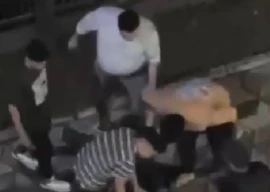
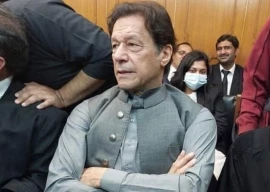
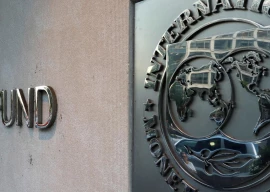

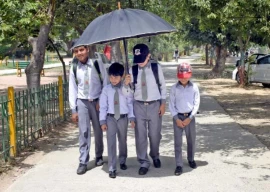
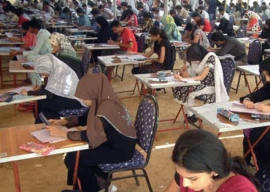

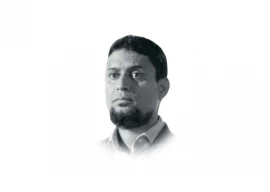

COMMENTS
Comments are moderated and generally will be posted if they are on-topic and not abusive.
For more information, please see our Comments FAQ